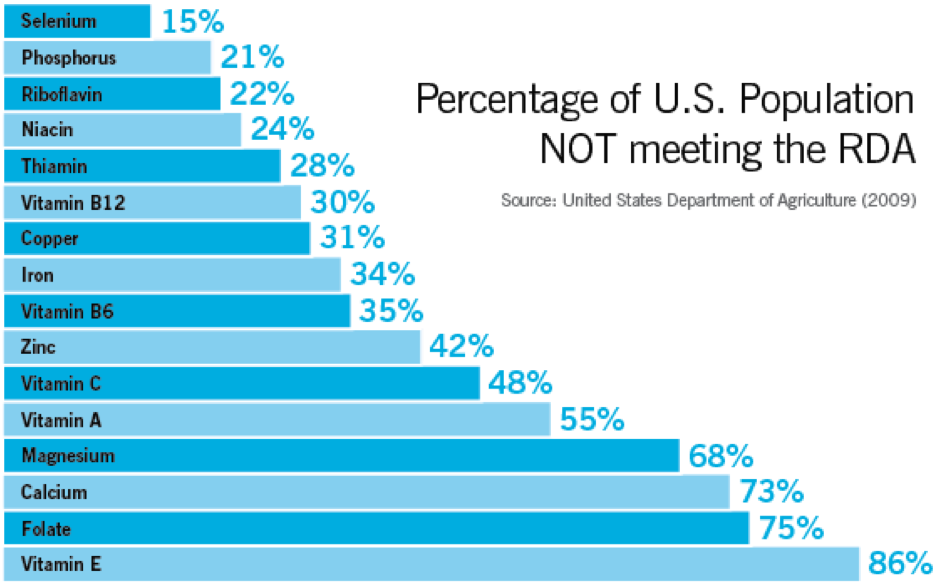Fully 90% of Americans are deficient in one or more key nutrients. Unfortunately, many Americans are not
even meeting the government’s (flawed) recommended daily allowances
of key nutrients. The chart below is from Precision
Nutrition, and is based
on USDA data.

I have some serious doubts in my mind
about the accuracy of the data when it applies to people with
diabetes. I would have thought vitamin B12 would have been a larger
percentage because if the number I know that are B12 deficient it
seems that the average would be closer to 55 percent instead of 30
percent. I guess I will just have to accept the estimate of the
USDA.
One nutrient in particular to note is
magnesium. Life Extension Foundation (LEF) points out in its most
recent issue (December 2016) that magnesium could be the next vitamin
D. It is a low-cost supplement that confers broad health benefits.
Magnesium is associated with reduced risks of sudden cardiac death,
stroke, type II diabetes, asthma, heart disease, hypertension, colon
and pancreatic cancer, and more.
Depending on the type taken, it also
helps the brain (magnesium-l-threonate is the most helpful) and bowel
regularity. Ironically, magnesium oxide, the type most commonly
sold, works best for regularity precisely because it is very poorly
absorbed by the body and thus does not confer most of the other
health benefits of this mineral! It is also important to have
functioning stomach acid to absorb and utilize any mineral. Those on
acid blockers are unlikely to be able to do so.
LEF also points out that food sources
for magnesium can be unreliable. This is because plants take
magnesium from the soil, and there can either be not enough magnesium
or too much of something else, like potassium, that crowds out a
plant’s absorption of magnesium. Studies show that the magnesium
content of food has declined precipitously from pre-1950s levels.
The bottom line: to get enough of this
vital nutrient, we probably need to supplement with it.
It’s ironic that the above chart data
comes from the US Department of Agriculture. Meanwhile, the FDA
continues its war against supplements, presumably intended to protect
the drug companies that fund the agency.
No comments:
Post a Comment